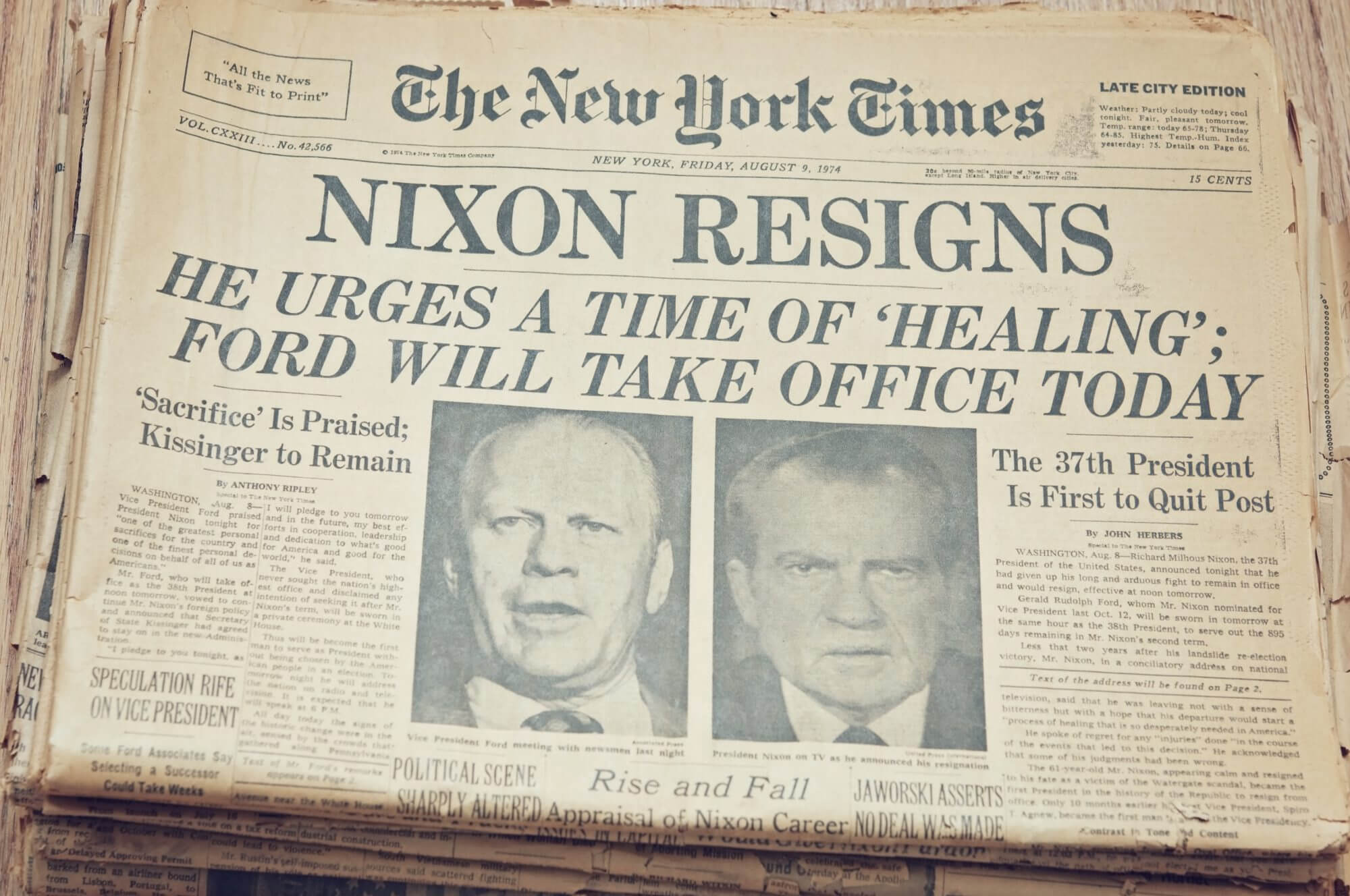
Date Created:
Year Created: 1974
Description:
During the Watergate scandal, the prosecutor subpoenaed Oval Office conversations audio tapes. President Nixon refused to turn over the tapes, asserting executive privilege.
Question: Is the President's right to safeguard certain information, using his "executive privilege" confidentiality power, entirely immune from judicial review?
Decision: The Supreme Court ruled unanimously (8-0) that President Nixon had to turn over the White House tape recordings. The Court rejected Nixon’s claim of absolute executive privilege, stating that while confidentiality is important for presidential communications, it is not unlimited and cannot be used to obstruct justice. The ruling established that no one, not even the president, is above the law. As a result, Nixon was forced to release the tapes, which provided evidence of his involvement in the Watergate cover-up. Facing almost certain impeachment, he resigned shortly after the decision.
Categories of Documents:
Citation:
"United States v. Nixon." Oyez, www.oyez.org/cases/1973/73-1766. Accessed 27 Mar. 2025.
Web Address:

